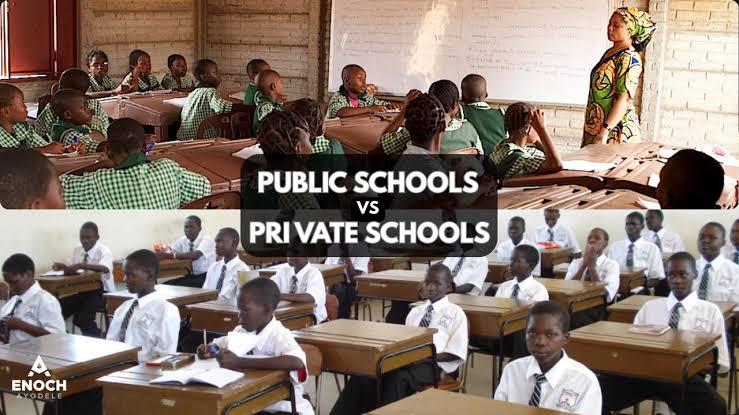Private Vs. Public Secondary Schools In Nigeria: Which Is Better?
Education is one of the most important investments parents make for their children’s future. In Nigeria, parents often face a major decision — whether to send their children to private secondary schools or public secondary schools. Each option has its strengths and weaknesses, depending on factors like cost, quality of education, facilities, and teacher commitment.
In this article, we’ll compare private and public secondary schools in Nigeria in terms of their advantages, disadvantages, fees, and overall learning environment to help you make an informed choice.
Overview of Private and Public Secondary Schools in Nigeria
| Feature | Private Secondary Schools | Public Secondary Schools |
|---|---|---|
| Ownership | Owned by individuals, organizations, or religious bodies | Owned and funded by the government |
| School Fees | High to moderate | Mostly free or very low |
| Facilities | Often modern and well-maintained | Often outdated or poorly maintained |
| Teacher Quality | Well-trained, more accountability | Varies; sometimes poorly motivated due to low pay |
| Class Size | Small (15–30 students) | Large (40–70+ students) |
| Curriculum | Flexible, sometimes includes foreign curricula | Follows government-approved national curriculum |
Pros and Cons of Private Secondary Schools in Nigeria
Advantages
-
Smaller class sizes, allowing for more personalized teaching.
-
Modern learning facilities such as science labs, computer rooms, and libraries.
-
Better teacher monitoring and accountability.
-
Sometimes offer international curricula alongside WAEC and NECO.
Disadvantages
-
High tuition fees, which can be a burden for many parents.
-
May focus too much on grades and external appearances.
-
Some are profit-driven and not genuinely concerned about quality.
Pros and Cons of Public Secondary Schools in Nigeria
Advantages
-
Very affordable, making them accessible to more families.
-
Experienced teachers who understand the Nigerian curriculum well.
-
Government support for WAEC and NECO registration in some states.
Disadvantages
-
Overcrowded classrooms, which limit individual attention to students.
-
Poor infrastructure and lack of adequate teaching materials.
-
Inconsistent teacher presence due to strikes and low motivation.
Cost Comparison
| School Type | Average Yearly Tuition | Extra Costs (Uniform, Books, PTA, etc.) |
|---|---|---|
| Private Secondary School | ₦200,000 – ₦3,000,000+ | ₦50,000 – ₦200,000+ |
| Public Secondary School | ₦0 – ₦50,000 | ₦10,000 – ₦50,000 |
Which Is Better?
-
Choose Private Secondary Schools if: You can afford higher fees and want a smaller class size, modern facilities, and possibly a blended curriculum.
-
Choose Public Secondary Schools if: You want affordable education and your child is self-motivated or you can supplement their learning with home tutoring.
FAQs About Private vs. Public Secondary Schools in Nigeria
1. Are private schools in Nigeria always better than public schools?
Not always. Some public schools perform better than poorly managed private schools. It depends on the school’s management, teachers, and resources.
2. Can a child in a public school compete academically with private school students?
Yes. With proper guidance, dedication, and support at home, students from public schools can excel just as well as those in private schools.
3. Why are private school fees so high?
They cover the cost of better facilities, teacher salaries, and sometimes foreign curricula.
4. Are there scholarships for private schools in Nigeria?
Yes, some private schools offer scholarships for brilliant students or children from low-income families.
Conclusion
Both private and public secondary schools in Nigeria have their strengths and weaknesses. The better choice depends on your budget, your child’s learning needs, and the quality of schools available in your area. The most important thing is to ensure your child gets quality education — whether it’s in a private or public setting.













